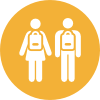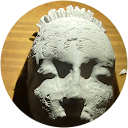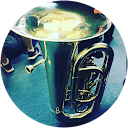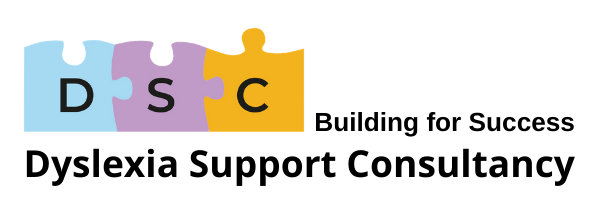
Dyslexia is defined by Rose (2009) as a ‘learning difficulty stemming from weak phonological processing, which primarily affects the skills involved in accurate and fluent reading and writing’.
Dyslexia is not only about difficulties in the acquisition of basic literacy skills, but also affects the way information is processed, stored and retrieved both from the short-term and long-term memory. There may also be difficulties in processing information at speed, phonological and word recognition difficulties, as well as organisation, co-ordination and sequencing. Some people may also find it difficult to read a ‘map’, know their left from their right, follow directions, tell the time.
Some Facts About Dyslexia
- Dyslexia comes from the Greek word ‘Dys’ which means difficulty and ‘lexia’ meaning words or language.
- Dyslexia is biological in origin. It is difficulty in reading, spelling, writing and number work, but can also include difficulty with remembering, sequencing information, word finding, organisation and co-ordination.
- Dyslexia can co-exist with other specific learning difficulties such as ADHD (a medical diagnosis is needed) and Dyspraxia.
- No two people with SpLD will be affected the same.
- Approximately 2–3 children in every classroom will have dyslexia, with approximately 10% of the population having it.
- It often runs in families.
- At school, children are often classified as ‘lazy’ – this is normally not true as they are working far, far harder than their peers to keep up.
- Unidentified and unsupported dyslexia and related conditions can lead to emotional distress, frustration and poor self-esteem and motivation. This could then lead to behavioural problems.
Indicators of Dyslexia
- Is a slow reader or makes unexpected errors when reading aloud
- Struggles to remember what has been read
- Inconsistent spellings – will spell the same word in a variety of different ways
- Struggles with remembering the spelling patterns
- Found it difficult to learn the letters of the alphabet
- Appears to have poor concentration
- Confuses left and right
- Struggles to copy information down when reading from the board
- Finds it difficult to plan and write essays, letters or reports
- Struggles with personal organisation
- Able to answer questions orally but written work is not at the same standard
- Has poor self-esteem and/or lack of motivation
- A family history of dyslexia/learning difficulties
Why choose Dyslexia Support Consultancy?
Contact Us
Assessments
A Full Diagnostic Report will help parents, the dyslexic person, teachers etc, to understand and offer the appropriate support, strategies and interventions that are needed to help the dyslexic person succeed.

Tuition
Every lesson is carefully tailored and planned meticulously to meet the needs of each pupil. Every lesson is monitored and evaluated to ensure maximum benefit.

Access Arrangements
The Joint Council of Qualifications (JCQ) have strict guidelines that schools must adhere to. Please get in contact to discuss your exact requirements.

Parental Support
Having a child with SEN can be daunting, I have a wealth of knowledge and expertise in helping parents help their child.

Specalist Support for Schools
Effective and specialist SEND training for schools, please contact me to let me know your specific requirements.

The final report is detailed, exceptionally clear, and written with real care and understanding. It captured our daughter’s strengths as well as her challenges, and gave us practical, realistic recommendations that we can use at home and with school.
Sarah’s expertise and professionalism were evident throughout, and we are so grateful for the guidance and support she has provided. It has genuinely made a huge difference and given us clarity and confidence moving forward.
Thank you so much, Sarah!






Friendly, professional, supportive, many thanks.






Thank you

The examiner was lovely and had such a kind nature which put my daughter at ease straight away.
Thank you.







The report was clear and concise and has helped school adapt his learning to suit his needs.
Thank you for your help.


We knew exactly what to expect when we arrived for the assessment and my little boy warmed to Eleanor immediately. She kept the assessment fun and seemed to really care about getting the best out of him. We received the report fairly quickly and it was clear to understand. I liked that it included some recommendations for how we can help at home as well as at school. All in all a great professional service - I would highly recommend.










Thank you so much! Highly recommended!





I would highly recommend this company to carry out a dyslexia assessment. Thnak you for such an excellent service.



She was also great at establishing a rapport with him and helping to put him at ease before beginning his assessment.



She made my 10year old feel at ease before taking her of for her assessment. My daughter was happy after her assesment. The written report was sent out quickly and it was very detailed. Thank you!



